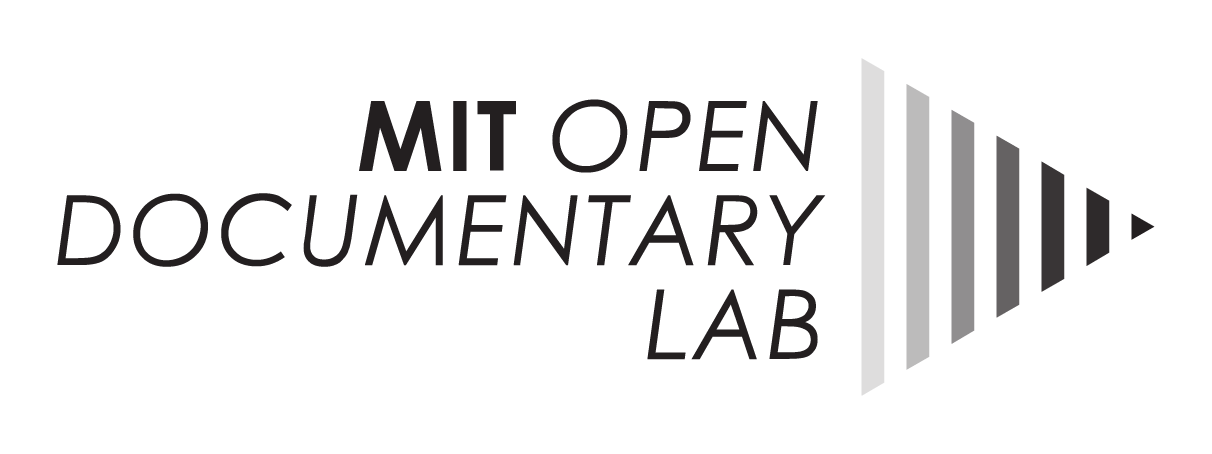18 Feb The New Arts of Documentary
A one-day summit for curators, funders, mediamakers, scholars, and technologists
March 20, 2012 @ Massachusetts Institute of Technology
Media Lab Complex, 6th floor (corner of Amherst Street and Ames Street)
Today is about collaboration. We’re bringing together curators, funders, mediamakers, scholars, and technologists to explore the new documentary landscape and to ask ourselves what we can do to foster innovative and responsible participation. This moment of transition is about building on established traditions, while thinking creatively about extending their reach and impact. It’s about learning from the past, from other domains, and from one another. It’s about greater participation and critical engagement. It’s about shaping the future.
9:00 – Registration/Breakfast
9:30 – Welcome
9:35 – Collaborative Activity
10:00 – Documentary’s Legacy of Innovation | William Uricchio, Director, Comparative Media Studies at MIT
10:30 – The Landscape of Innovation
New documentary forms draw on decades of innovation in filmmaking, interactive media, collaborative authorship, data visualization and technology. They blur the boundaries between producers and users; empower once marginal communities; and open new possibilities for storytelling. How might we map this new landscape? How can we create a common language among people with different expertise—storytellers and cartographers, interaction designers and technologists, community activists and content experts? How do makers, scholars, critics, and funders develop a framework for evaluation, reach, and impact?
Moderator: William Uricchio
Presentations: Catherine D’Ignazio, MIT CMS
Glorianna Davenport, MIT, Media Lab
Sasha Costanza Chock, MIT, CMS
Scot Osterweil, MIT, CMS
11:30 – Coffee
11:50 – A Fabric of Implication
Today’s documentary makers face a landscape characterized by near-ubiquitous connectivity, user-generated content, and fast-changing platforms. As the relationships among maker, subject and audience continue to change, when do projects succeed, and when do they fail? What can we learn from the collaborative efforts of the past and how might we enhance the interactions between media makers and their community partners? What are the benefits—and trade-offs—of collaborative authorship? What practical and ethical issues are bound up in these kind of collaborative projects? What can we learn from such developments as the open source movement, transmedia strategies, and social activism, and what are their implications for the future of documentary?
Moderator: Chris Walley
Presentations: Chris Johnson, Question Bridge: Black Male
Vivek Bald, Bengali Harlem
Gerry Flahive, HighRise, One Millionth Tower
Audrey Ewell, 99% – The Occupy Wall Street Collaborative Film
Caroline Oh, 18 Days in Egypt
1:05 – Lunch
2:00 – Break-out sessions | The Logistics of New Documentary Forms
As documentaries move across screens and off them, from single author to many, and from one-hour duration to minutes, days and years, how can we find suitable business models, distribution channels and exhibition venues? How can projects distributed online or embedded on location build an audience? When projects straddle the boundary between “film” and “new media,” where can their creators go for funding? Do new forms of production and engagement bring with them new possibilities for sponsorship, whether institutional, corporate or crowd-sourced? How can we re-imagine the interaction of new media forms in traditional media venues?
Presentations: Robert Greenwald (video)
Highrise subway installation (video)
Location-based Storytelling
Foundation Funding Models
3:00 – Wrap up
3:30-4:00 – Coffee, refreshments
Demos:
DoppelLab, Media Lab
Calliope, Media Lab
Camera Culture, Media Lab
Locast, Mobile Experience Lab
Mass Extinction, Education Arcade
Note: People will be pulled out for short interviews in our story booth. People may also use the story booth themselves.
5pm – Communications Forum: Documentary Film and New Technologies
Bartos Theater, Media Lab
Emerging digital technologies are opening powerful new ways to create and even to reconceptualize the documentary film. How will handheld video cameras and ubiquitous open-source computing change the nature of documentaries? What are the implications for makers and viewers of documentaries of today’s unprecedented access to online editing and distribution tools, to an ocean of data never before available to the general public? These and related questions will be central to our discussion. Panelists will include a scholar of digital culture, a producer who has begun to exploit emerging technologies, and a representative of a newly-important specialty of the digital age – a curator of digital artifacts.
Gerry Flahive, National Film Board of Canada
Shari Frilot, Sundance Institute
Patricia Zimmerman, Ithaca College
William Uricchio, MIT (moderator)



